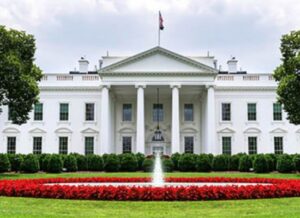
Partners in professional service firms must sometimes pay for certain firm-related business expenses out of their own pockets. For instance, a law firm partner may have to personally absorb the costs of entertaining prospective clients who are not on a designated firm-wide list of potential clients for which the firm will reimburse the costs of wining and dining. Also, a partner may incur personal auto expenses to drive to and from client meetings and to and from other locations where firm-related business is undertaken. Some partners also may have to pay for some — or all — of their continuing education expenses.
The good news is these unreimbursed business-related outlays can generally be deducted on the partner’s personal federal income tax return (Form 1040). The bad news is partners cannot deduct expenses that would have been reimbursed if they had turned them into the firm. One Tax Court decision illustrates that point. Here’s what you need to know, starting with some necessary background information.
Partner Business Expense Deduction Basics – Reimbursable Expenses
For federal income tax purposes, a partner can write off unreimbursed partnership-related business expenses on Schedule E of Form 1040 (the same schedule where the partner’s share of partnership income is reported). However, for deductions to be allowed, the expenses must be of the type that the partner is expected to pay out of his or her own pocket per the partnership agreement or firm policy. In theory, the agreement or policy can be written or unwritten; more on that later.
Of course, only 50 percent of unreimbursed meal and entertainment expenses can be deducted on Schedule E. The partner should also include the deductible amount as an expense for self-employment tax calculation purposes on his or her Schedule SE. That way the partner receives an SE tax-saving benefit as well as an income tax-saving benefit.
Here’s the rub: Partners cannot deduct expenses if they could have turned them into their firms and been reimbursed. In other words, no deduction is allowed for “voluntary” out-of-pocket expenses (consistent with the principle that no good deed goes unpunished). The best way to eliminate any doubt about the proper tax treatment of unreimbursed partnership expenses is to install a written firm policy that clearly states what will and will not be reimbursed. That way, the firm’s partners can deduct their unreimbursed firm-related business expenses without any static from the IRS.
Tax Court Decision and Appeal
In one decision, the Fifth Circuit Court of Appeals agreed with the Tax Court that the IRS had properly disallowed a law firm partner’s claimed deductions for various firm-related business expenses. Under the partnership agreement, partners’ expenses for business meals, travel, client entertainment conventions and continuing education were reimbursed subject to the approval of the managing partner. Professional organization and bar membership fees were routinely reimbursed by the firm. Therefore, the taxpayer could not deduct these expenses on his personal return.
The Fifth Circuit also agreed with the Tax Court and the IRS that certain expenses the taxpayer chose to incur, such as for advertising and a home office, were not deductible because they were not required by the partnership and were not clearly related to the partnership’s business.
Finally, the Fifth Circuit agreed that the taxpayer had failed to substantiate amounts, dates and business purpose for claimed business use of auto expenses. (Peter McLauchlan, 113 AFTR 2d 2014-574, 5th Cir. 2014)
Message for Attorneys
When partnership business expenses will be reimbursed according to the partnership agreement or standard operating procedures, turn them in! If this is the case, you are not entitled to any tax deductions for paying reimbursable expenses out of your own pocket.
On the partnership side of the deal, the smart thing to do is to install a written firm policy that clearly states what will and will not be reimbursed. That way, the partners know what to expect, and needless IRS controversies are avoided. If you have questions or want more information on this issue, contact your tax adviser.
For more information about reimbursable expenses by partners at professional services firms, contact Judy Barnhard or Winnie Yang via our online contact form.
Councilor, Buchanan & Mitchell (CBM) is a professional services firm delivering tax, accounting and business advisory expertise throughout the Mid-Atlantic region from offices in Bethesda, MD and Washington, DC.



